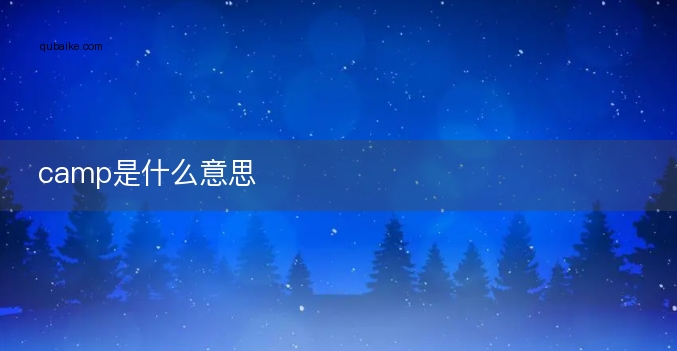
"wherever he went in the camp the men were grumbling"
"the whole camp laughed at his mistake"
"level ground is best for parking and camp areas"
"China has many camps for political prisoners"
"the living room was pure camp"
"city kids get to see the country at a summer camp"
"they played up the silliness of their roles for camp effect" "campy Hollywood musicals of the 1940's"
"Can we go camping again this summer?" "The circus tented near the town" "The houseguests had to camp in the living room"
误 They went to camp in Chengde yesterday.
正 They went camping in Chengde yesterday.
析 和“去打猎(go hunting)”等用法一样,去宿营说go camping,不说go to camp。